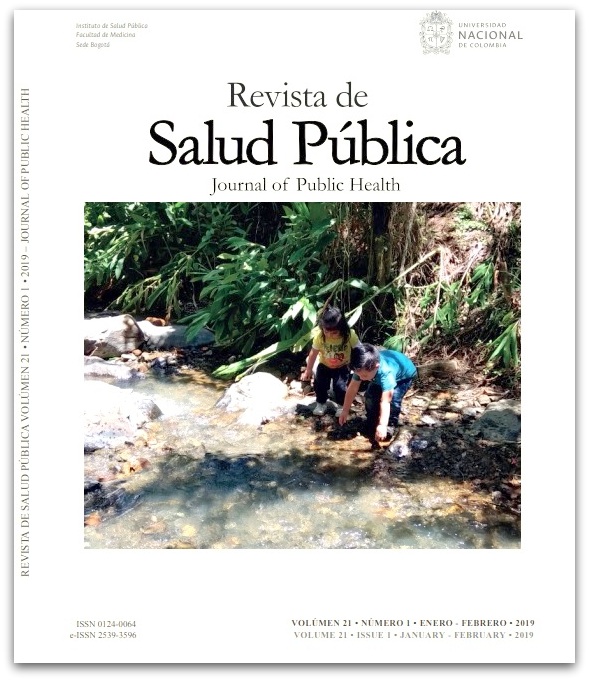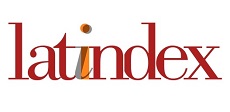Impact of the promotora model on the improvement of oral health knowledge of caregivers
Impacto del modelo promotora en el mejoramiento del conocimiento sobre salud oral de los cuidadores
DOI:
https://doi.org/10.15446/rsap.v21n1.73770Palabras clave:
Health educator, oral health, knowledge (en)Educadores en salud, salud bucal, conocimiento (es)
Descargas
Objective The objective of this quasi-experimental study was to determine the impact of the Promotora Model (PM) as an educational strategy to increase oral health knowledge in parents/caregivers of children aged 2–5 years at high risk for dental caries. Materials and Methods Sixty-three caregivers who provided informed consent were included in the study. A structured 37-item survey was administered prior to conducting the Promotora educational intervention (PEI) that covered oral health topics and behaviors. Three (3) months after the PEI session, during their child’s next dental visit, the same instrument was administered to 46 of the parents/caregivers that had completed the first instrument. Results Most caregivers were Hispanic (73.9%) and 50% reported completing high school. Before PEI, 56.5% of participants scored as having “good” general knowledge. Three months after PEI, 82.6% achieved that score (paired sample T-test, p< 0.00001). Conclusion Based on the results, it was concluded that the PM significantly increased caregivers’ oral health knowledge.
Objetivo El propósito de este estudio cuasi-experimental fue determinar el impacto del Modelo Promotora (MP) como estrategia educacional para mejorar el conocimiento sobre salud oral de los padres y/o cuidadores de niños con edades comprendidas entre 2-5 años con alto riesgo de sufrir caries dental. Métodos Sesenta y tres padres y/o cuidadores quienes dieron el consentimiento fueron incluidos en el estudio. Se administró un cuestionario estructurado de 37 preguntas antes de la intervención educativa (IE) con el Modelo Promotora (IEP) el cual cubría tópicos sobre salud oral y conductas. Tres (3) meses después de la sesión de IEP, en la próxima visita dental del niño, el mismo cuestionario fue administrado a 46 padres y/o cuidadores que habían completado el primer cuestionario. Resultados La mayoría de los padres y/o cuidadores eran Hispanos (73,9%) y 50% reporto tener bachillerato completo. Antes del IEP, 56,5% de los participantes presentó un nivel general de conocimiento “Bueno.” Tres meses después de la aplicación del IEP, 82,6% obtuvieron el mismo nivel de conocimiento (T-test, p<0.00001). Conclusión Se concluye que el MP mejora considerablemente el conocimiento sobre salud bucal de los padres y/o cuidadores.
Referencias
Dye BA, Thornton-Evans G, Li X, Iafolla TJ. Dental caries and sealant prevalence in children and adolescents in the United States, 2011–2012. NCHS Data Brief No. 191. Hyattsville, MD: U.S. Department of Health and Human Services, Centers for Disease Control and Prevention, National Center for Health Statistics; 2015. Available from: http://bit.ly/2mpPZkJ.
Kelly SE, Binkley CJ, Neace WP, Gale BS. Barriers to care--seeking for children’s oral health among low-income caregivers. Am J Public Health. 2005; 95(8):1345–51. Available from: http://bit.ly/2mvgt43.
McKinney VL. The relationship between early childhood caries and caregivers’ oral health knowledge and behavior among Medicaid-eligible children in North Carolina [thesis]. Chapel Hill, NC: University of North Carolina; 2006. Available from: https://unc.live/2kOwIZC.
Vann WF, Lee JY, Baker D, Divaris K. Oral health literacy among female caregivers: Impact on oral health outcomes in early childhood. J Dent Res. 2010;89(12):1395–400. Available from: http://bit.ly/2mvhxoz.
Sanders LM, Federico S, Klass P, Abrams MA, Dreyer B. Literacyand child health: Systematic review. Arch Pediatr Adolesc Med. 2009;163(2):131–40. Available from: http://bit.ly/2mnyoda.
Watson MR, Horowitz AM, Garcia I, Canto MT. Caries conditions among 2-5 year- old immigrant Latino children related to parents’ oral health knowledge, opinions and practices. Community Dent Oral Epidemiol. 1999; 27:8–15. Available from: http://bit.ly/2mtltWU.
Swan M, Barker JC, Hoeft KS. Rural Latino farmworker fathers’ understanding of children’s oral hygiene practices. Pediatr Dent. 2010; 32(5): 400–6. Available from: http://bit.ly/2mmYTPY.
Hoeft K, Rios SM, Pantoja Guzman E, Barker JC. Using community participation to assess acceptability of “Contra Caries”, A theory based, promotora-led oral health education program for rural Latino parents: a mixed methods study. BMC Oral Health. 2015; 15:103. Available from: http://bit.ly/2mPUJ33.
Gussy MG, Waters EB, Riggs EM, Lo SK, Kilpatrick NM. Parental knowledge, beliefs and behaviors for oral health of toddlers residing in rural Victoria. Aust Dent J. 2008; 53: 52–60. Available from: http://bit. ly/2mlznuh.
Castilo-Carreno A, Espinoza-Venegas M, Luengo-Machuca L. Compromiso paterno y la relación con sus conductas promotoras de salud. Rev. Salud Publica 20(5):541-547, 2018. Available from: http://bit.ly/2muqq1D.
Garcia RI, Cadoret C, Henshaw M. Multicultural issues in oral health. Dent Clin North Am. 2008;52(2):319–32. Available from: http://bit.ly/2lq3e4x.
United States Census Bureau. The Hispanic Population in the United States: 2014. [Website] Available from: http://bit.ly/2mSOZ8N.
Promotores de Salud/ Community Health Workers. Health Equity. Centers for Disease Control and Prevention. Available from: http://bit.ly/2mpV6RX.
Rural Health Information Hub. Promotora de la salud/lay health worker model [Website]. Available from: http://bit.ly/2moryUG.
Anders RL, Balcazar H, Paez L. Hispanic community-based participatory research using a promotores de salud model. Hispanic Health Care International. 2006; 4(2):71–78. Available from: http://bit.ly/2mlBdLH.
Balcazar H, Alvarado M, Hollen ML, et al. Salud para su Corazón-NCLR: A comprehensive promotora outreach program to promoteheart-healthy behaviors among Hispanics. Health Promotion Practice. 2006; 7(1):68–77. Available from: http://bit.ly/2mUpVhQ.
Walton A, Calvo Y, Flores M, Navarrete L, Ruiz L. Promotoras: Observations and implications for increasing cervical cancer prevention and screening in the Hispanic community. Journal of the South Carolina Medical Association. 2009; 105(7):306–308.
Capitman JA, González A, Ramírez M, Pacheco TL. The effectiveness of a promotora health education model for improving Latino health care access in California’s Central Valley. Fresno, CA: Central Valley Health Policy Institute; 2009. Available from: http://bit.ly/2mossk2.
Balcázar H, Alvarado M, Cantu F, Pedregon V, et al. A Promotora de Salud Model for Addressing Cardiovascular Disease Risk Factors in the US-Mexico Border Region. Available from: http://bit.ly/2kQj5sW.
Hoeft K, Barker JC, Masterson EE. Urban Mexican-American mothers’beliefs about caries etiology in children. Community Dent Oral Epidemiol. 2010; 38(3): 244–55. Available from: http://bit.ly/2mpVIXA.
Hunter JB, de Zapien JG, Papenfuss M, Fernandez ML, Meister J, Giuliano AR. The impact of a promotora on increasing routine chronic disease prevention among women aged 40 and older at the US-Mexico border. Health Education & Behavior. 2004; 31(4 suppl):18–28. Available from: http://bit.ly/2mvmXQr.
The Promotor Model. A Model for Building Healthy Communities. A Framing Paper March 29, 2011 Available from: http://bit.ly/2momT56.
Davila ME, Tomar SL. PROMOTORA MODEL to improve oral health: An exploratory study among diverse low-income community. Revista Odontologica de Los Andes. 2017;.12 (2):24-32. Available from: http://bit.ly/2mQOE6w.
American Academy of Pediatric Dentistry. Guideline on Caries-risk assessment and management for infants, children, and adolescents. Reference Manual. 201; 37(6): Available from: http://bit.ly/2kTARf1.
Akpabio A, Klausner CP, Inglehart MR. Mothers’/guardians’ knowledge about promoting children’s oral health. J Dent Hyg. 2008; 82(1):12 Available from: http://bit.ly/2kQ02in.
Schroth RJ, Brothwell DJ, Moffatt ME. Caregiver knowledge and attitudes of preschool oral health and early childhood caries (ECC). Int J Circumpolar Health. 2007; 66(2):153-67. Available from: http://bit.ly/2mvnYbd.
Ashkanani F, Al-Sane M. Knowledge, attitudes and practices of caregivers in relation to oral health of preschool children. Med Princ Pract. 2013; 22:167–72. Available from: http://bit.ly/2mNy1IS.
Sakai VT, Oliveira TM, Silva TC, Moretti AB, Geller-Palti D, Biella VA, et al. Knowledge and attitude of parents or caretakers regarding transmissibility of caries disease. J Appl Oral Sci. 2008;16(2):150–4. Available from: http://bit.ly/2mNTKAr.
Horton S, Barker JC. Rural Latino immigrant caregivers’ conceptions of their children’s oral disease. J Public Health Dent 2008; 68 (1):22–9. Available from: http://bit.ly/2kQuGrX.
Ardérius A, Veiga N, Godinho M, Ribeiro C. The influence of parents’ educational level in children’s oral health behavior. Public Health Res. 2015;5(1):28–31. Available from: http://bit.ly/2mnFuOQ.
Miller E, Lee JY, DeWait DA, Vann WF Jr. Impact of caregiver literacy on children's oral health outcomes. Pediatrics. 2010;126(1):107–14. . Available from: http://bit.ly/2kQ18uv.
Cómo citar
APA
ACM
ACS
ABNT
Chicago
Harvard
IEEE
MLA
Turabian
Vancouver
Descargar cita
CrossRef Cited-by
1. Maria Cristina Giraldo-Zuluaga, Alejandra Lopera-Escobar, Laura Daniela Sepúlveda-Drosos. (2025). Del aprendizaje al hábito: apropiación de conocimientos de salud bucal por madres sustitutas en el entorno familiar. Revista Facultad de Odontología, 37(2) https://doi.org/10.17533/udea.rfo.v37n1e359961.
2. Stephanie Cruz, Haley Holland, Donald L. Chi. (2024). Validating a Conceptual Model on Topical Fluoride Hesitancy With Latino Parents. Health Education & Behavior, 51(5), p.719. https://doi.org/10.1177/10901981241231500.
Dimensions
PlumX
Visitas a la página del resumen del artículo
Descargas
Licencia
Derechos de autor 2019 Revista de Salud Pública

Esta obra está bajo una licencia internacional Creative Commons Atribución 4.0.
Esta revista provee acceso libre inmediato a su contenido bajo el principio de que hacer disponible gratuitamente investigación al publico apoya a un mayor intercambio de conocimiento global.
Todos los contenidos de esta revista, excepto dónde está identificado, están publicados bajo una Licencia Creative Commons Atribución 4.0.





















